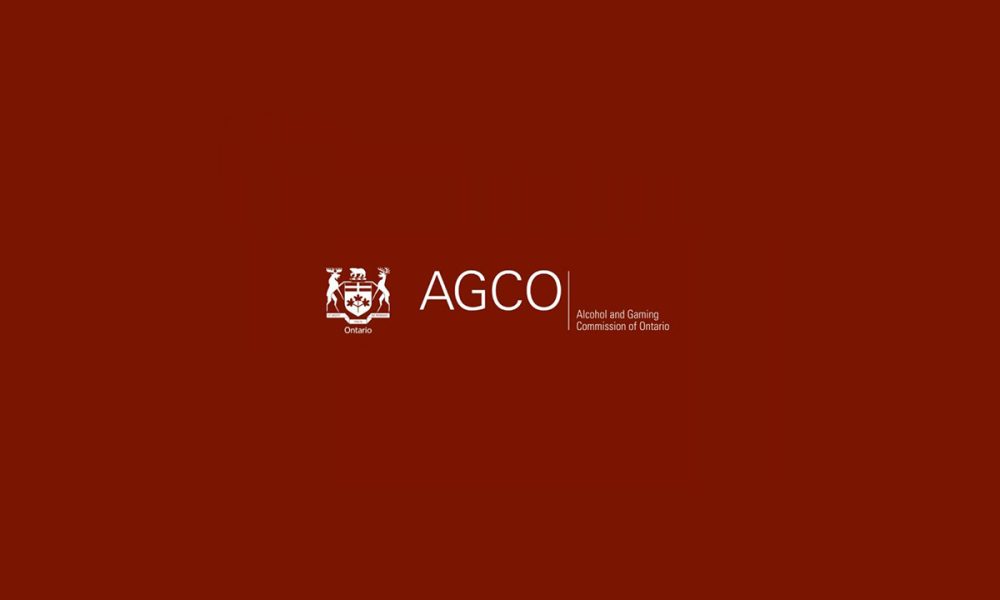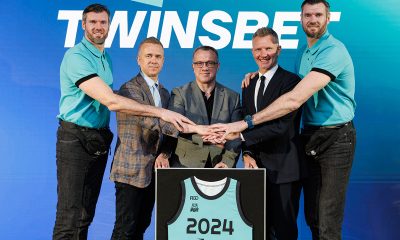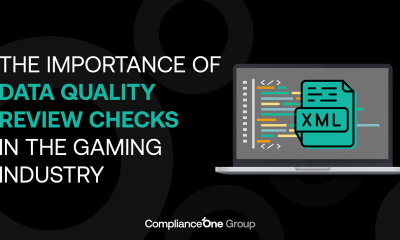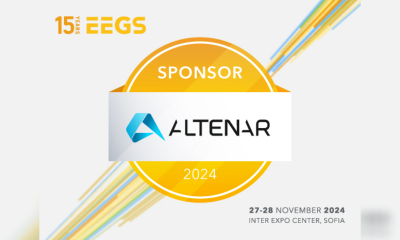Canada
FANDOM’S INSIDE GAMING REPORT UNCOVERS THE MINDSET & MOTIVATIONS OF GAMERS ACROSS GENERATIONS

Video game franchises have taken mainstream media by storm and gaming as a pastime is showing no signs of slowing down – its a hobby that has captured the cultural zeitgeist and crossed generational lines, and there’s no such thing as a ‘typical gamer’ any more. Now more than ever the industry needs to adopt a more nuanced and generational approach to game development & marketing in order to make a true impact with gaming fans.
Fandom’s Inside Gaming report couples Fandom’s robust, proprietary user data with a custom global study that examines how gamer motivations and behaviors vary by generation and provides a playbook for the gaming industry at large on how to truly understand the mindset of a gaming fan. The findings from the 2023 Inside Gaming report will help brands stand out in this increasingly crowded marketplace while giving them the tools to identify, interact and more precisely connect with today’s gaming audience. This deep dive into the generational differences in gaming uncovered findings in three key areas:
-
Brand & Advertising Impact – examines generational motivations on gaming influence and intent to purchase, as well as which advertiser categories and specific brands are primed to make a huge splash with gamers
-
Gamer Motivations by Generation – explores the differences between major generational groups and their motivations & influence within the gaming space
- Co-Gaming – highlights positive findings around gaming between parents & kids while also providing unique insights to fuel advertising strategies when aligning with families in the gaming space
|
|

“More than 150 million gaming fans come to Fandom and our 100K+ gaming communities each month, allowing us to unlock precise and unmatched insights about gamers across generations and platforms,” said Stephanie Fried, Fandom’s CMO. “These new insights into the behaviors, attitudes and perceptions of today’s gamers will enable marketers and studio leadership to drive better fan experiences and incremental revenue.”

The study uncovered huge opportunities for brands to more strategically tap into gaming audiences – namely in the CPG and QSR industries – and identified the generations that represent the biggest untapped opportunity for marketers. Findings include:
|

There isn’t a “one-size-fits-all” approach to understanding and marketing to gaming audiences. Motivation and influence vary by generation, so it’s critical to understand the mindset of a gaming fan in order to make a true impact in the marketplace. Findings include:
|
|

With the gaming industry booming, time spent gaming increasing, and gaming IP’s seeing huge success crossing over into TV and movies, gaming as a pastime is here to stay. Interestingly, the findings uncover benefits for parents co-gaming with their kids, as well as co-gaming motivations by age group:
|
|
Methodology:
The 2023 Inside Gaming report identifies macro-level entertainment patterns and trends based on a survey of 15,000 Global Fandom users. These insights were validated and deepened through Fandom’s robust user data – more than 350 million monthly unique visitors, 45 million pages of content across 250,000 wikis – and qualitative and quantitative insights from Fandom’s proprietary fan panel. This methodology provides a 360-degree view of what’s happening in the gaming landscape through the eyes of Fandom.
Alcohol and Gaming Commission of Ontario (AGCO)
Soft2Bet strengthens integrity monitoring with IBIA membership in Ontario

Soft2Bet, a leading casino and sportsbook platform provider, has joined the International Betting Integrity Association (IBIA) and activated its membership in Ontario, Canada, following its licensing in the Canadian province.
Soft2bet obtained its Certificate of Registration from the Alcohol and Gaming Commission of Ontario (AGCO) at the end of March, where the company’s Ontario-focused brand Tooniebet.com will now feed into IBIA’s world-leading sports betting integrity monitoring platform before worldwide implementation in the coming months.
IBIA includes over 50 of the world’s leading sports betting and gaming companies, who operate over 125 sports betting brands. Soft2Bet’s decision to join the association further strengthens its own internal betting integrity protocols and IBIA’s position as the world’s leading sports betting integrity monitoring body.
David Yatom Hay, General Counsel at Soft2Bet, commented: “Soft2Bet is delighted to be joining the IBIA as we strengthen our own betting integrity monitoring processes and play our part in furthering the IBIA’s long-standing work on this key issue. Ontario is a world class iGaming jurisdiction; it will be the first market where we will implement our IBIA membership and we look forward to deploying the monitoring infrastructure worldwide in all the other markets in which we operate.”
Khalid Ali, CEO of IBIA, said: “Soft2Bet is a very welcome addition to IBIA, further strengthening our position in the Ontario market. The operator’s decision to join IBIA demonstrates its desire to utilise the best integrity protection available for its sportsbook product. The association is delighted to be able to integrate Tooniebet within our integrity monitoring system and looks forward to working closely with Soft2Bet to maintain the high integrity of its sportsbook.”
IBIA is a not-for-profit body that has no competing conflicts with the delivery of commercial services to other sectors and is run by operators and for operators to protect regulated sports betting markets from match-fixing. IBIA’s global monitoring network is a highly effective anti-corruption tool, detecting and reporting suspicious activity in regulated betting markets.
Through the IBIA monitoring network it is possible to track transactional activities linked to individual customer accounts. IBIA members generate more than $300bn in annual betting turnover (handle), accounting for approximately 50% of the global commercial regulated land-based and online sports betting sector, and in excess of 50% for online alone.
IBIA recently released a report on the Availability of Sports Betting Products which highlighted Ontario as a leading regulated gambling jurisdiction, with an expected onshore channelisation for sports betting of 92% in 2024 forecast to rise to 97% in2028. IBIA currently represents over 60% of the private sports betting operators licensed in the province. All online sportsbetting operators licensed in Ontario are required to be part of a betting integrity monitoring body.
IBIA’s Q1 2024 report detailed 56 alerts during the quarter. IBIA alerts contributed to the investigations and subsequent successful sanctioning of 21 clubs, players and officials in 2023, an increase on the 15 sanctioned in 2022.
British Columbia Lottery Corporation
SCCG Management Signs Contract with British Columbia Lottery Corporation

SCCG Management has signed a contract with the British Columbia Lottery Corporation (BCLC), the B.C. Crown corporation which conducts and manages commercial gambling in the province, including lotteries, casinos, and online gaming. This partnership aims to undertake a comprehensive assessment and strategic enhancement of BCLC’s diverse operations.
The work between SCCG and BCLC will involve a thorough review of technological infrastructures, strategic market positioning, and the integration of various gaming modalities. SCCG’s extensive expertise will be pivotal in harmonizing BCLC’s online and physical gaming experiences.
Stephen Crystal, Founder and CEO of SCCG Management, said: “Our collaboration with BCLC represents a remarkable opportunity to push the boundaries of innovation within the gaming industry. We are committed to deploying our resources and expertise to enhance BCLC’s operational efficiencies and customer engagement strategies. It’s an honor to partner with an organization that has a robust impact on the community through its support of public initiatives.”
AGCO
AGCO Requires Ontario Gaming Operators to Stop Offering WBA Bets Due to Integrity Concerns

The Alcohol and Gaming Commission of Ontario (AGCO) has mandated all Ontario-registered sportsbook operators to halt offering and accepting wagers on World Boxing Association (WBA) events immediately. This measure is being taken to protect the Ontario betting public following concerns that WBA-sanctioned boxing matches are not adequately being safeguarded against match-fixing and insider betting.
Since December 2023, the AGCO has been conducting a comprehensive review of suspicious wagering activity on a WBA-sanctioned title fight between Yoenis Tellez and Livan Navarro that was held in Orlando, Florida. Suspicious betting patterns on the bout lasting over 5.5 rounds were reported to the AGCO by two registered independent integrity monitors and detected in Ontario by a registered igaming operator. Media reports also alleged that Tellez’s Manager placed $110,000 on the match lasting longer than 5.5 rounds at a Florida casino. The bout ended with Tellez knocking out Navarro in the 10th round.
Following an intensive review that included outreach to the WBA, Ontario-registered gaming operators, independent integrity monitors, and regulators in other jurisdictions, the AGCO has concluded that bets related to WBA events do not currently meet the Registrar’s Standards for Internet Gaming.
The AGCO requires all Ontario-registered gaming operators to ensure the sport betting products they offer are on events that are effectively supervised by a sport governing body. At a minimum, the sport governing body must have and enforce codes of conduct that prohibit betting by insiders.
Registered gaming operators were unable to demonstrate to the AGCO that the WBA prohibits betting from insiders, which could include an athlete’s coaches, managers, handlers, athletic trainers, medical professionals, or others with access to non-public information. Further, registered gaming operators were unable to demonstrate that the WBA took any action to investigate or enforce the allegations of potential match-fixing and insider wagering.
The AGCO has indicated to registered operators that in order for WBA betting products to be reinstated in Ontario, operators must demonstrate that the WBA effectively supervises its events, thus bringing them into compliance with the Registrar’s Standards. In December 2022, the AGCO required gaming operators to stop offering bets on UFC events for similar issues related to insider betting safeguards. Within a month, UFC amended its policies and implemented new protocols that allowed the AGCO to reinstate betting on UFC events in the province.
“Ontarians who wish to bet on sporting events need to be confident that those events are fairly run, and that clear integrity safeguards are in place and enforced by an effective sport governing body. Knowing the popularity of boxing in Ontario, we look forward to reinstating betting on WBA events once appropriate safeguards against possible match-fixing and insider betting have been confirmed,” Dr. Karin Schnarr, Registrar and CEO of AGCO, said.
-

 Baltics4 weeks ago
Baltics4 weeks agoLithuania’s Nese enters iGaming with a record sponsorship deal
-

 Latest News1 week ago
Latest News1 week agoThe Importance of Data Quality Review Checks in the Gaming Industry
-

 Asia2 weeks ago
Asia2 weeks agoOnlyplay Enters into Strategic Partnership with Ritchie Rabbit
-
Africa4 weeks ago
BMM Testlabs Continues Its Expansion in Africa with New Licenses in Botswana and Nigeria to Test Land-Based and Digital Products
-
Africa4 weeks ago
KingMakers’ Nigerian operating business, BetKing, selects Genius Sports to power growth with in-play trading services
-

 Conferences in Europe4 weeks ago
Conferences in Europe4 weeks agoAltenar becomes General Sponsor of EEGS 2024
-

 EurAsia4 weeks ago
EurAsia4 weeks agoFastex Forges Partnership with Olympionic Foundation to Boost Sports Development in Armenia
-

 Compliance Updates4 weeks ago
Compliance Updates4 weeks agoBooming Games secures Romanian B2B license




